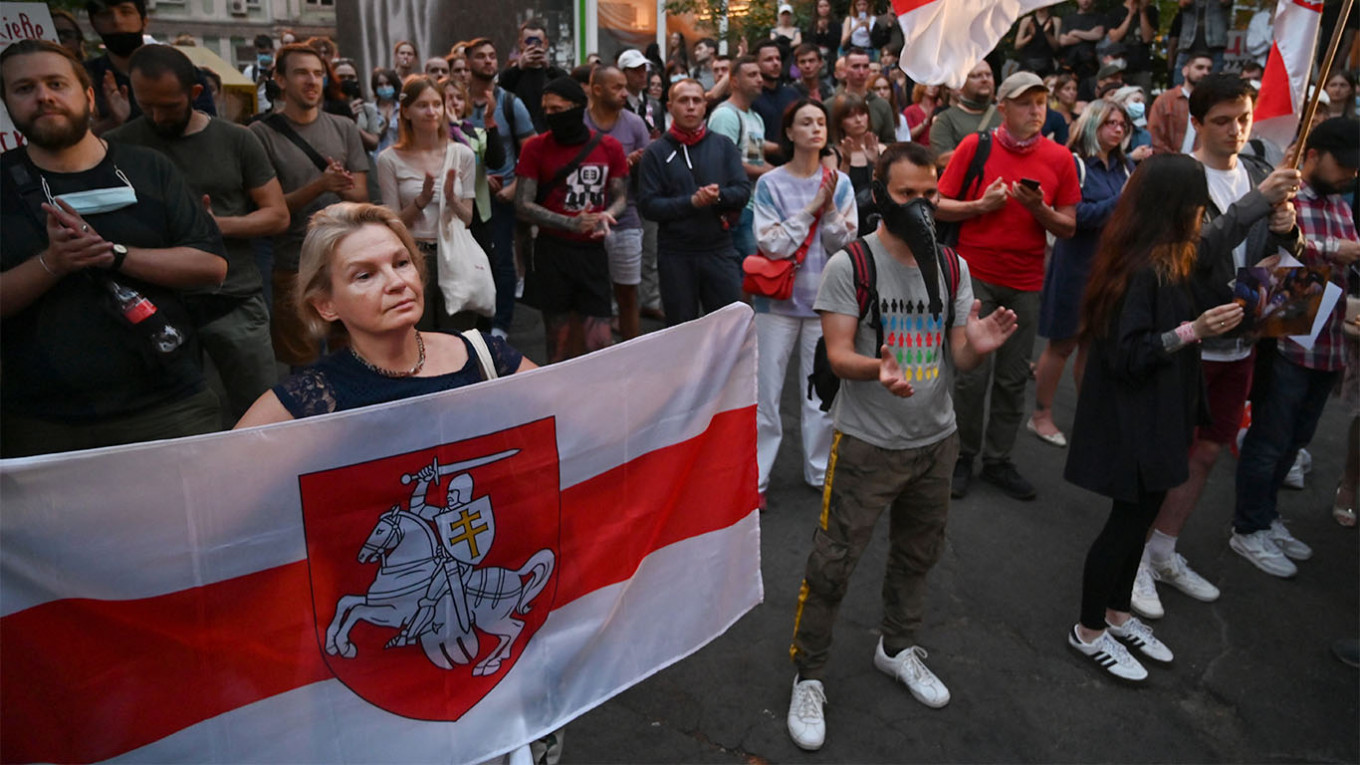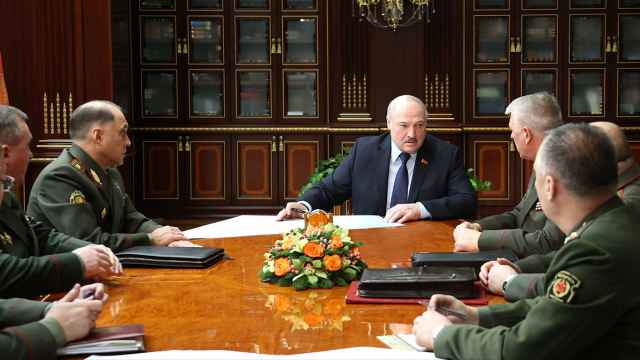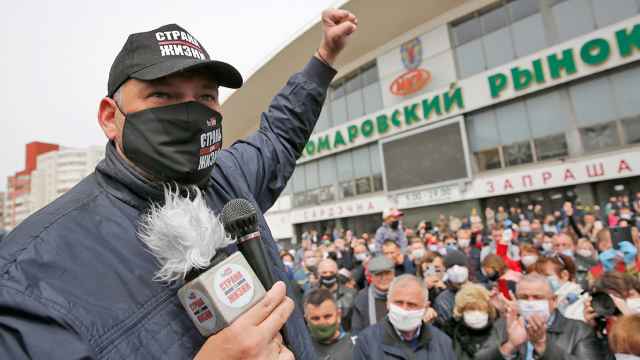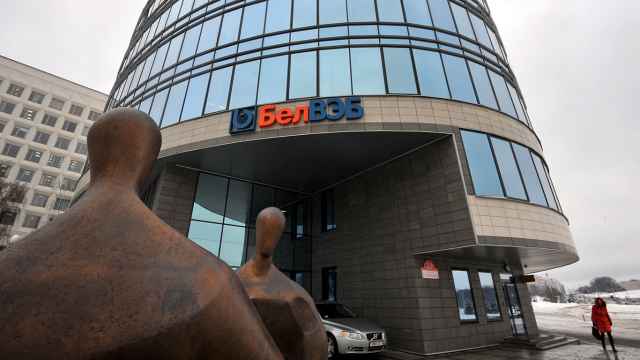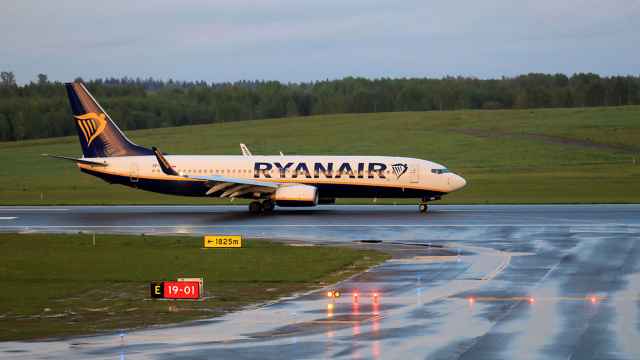On Aug. 9, Belarus voted to remove President Alexander Lukashenko from office. The election was unfree and unfair, but people came to the polls in droves to support Svetlana Tikhanovskaya. The wife of a jailed contender, she was a reluctant candidate but galvanized the country with a creative and brilliant campaign.
No one believes the official results: 80% for Lukashenko and 10% for Tikhanovskaya. Across the country, women, men, old and young, are demonstrating against the regime that has lied to them once again. This peaceful movement unites the country. Its main demand: to release political prisoners and hold free elections.
Belarus has seen nothing on this scale before. But Europe did in 1989. That “miracle year” is the only proper comparison with events unfolding now. Belarus is finishing a great reordering of European politics that began three decades ago. It started with the landslide election victory of the Solidarity trade union movement in Poland. In the months that followed, peaceful people power toppled communist regimes across the Soviet bloc. It was a new dawn for the continent: Germany was reunified, Central Europe became democratic, and prosperity followed the inevitably painful transition from communism.
Two years later, in 1991, Slobodan Milosevic triggered the bloody wars of Yugoslavia in his bid to stay in power. From that carnage six states emerged, and after further carnage, a seventh, Kosovo. In the “Bulldozer Revolution” of 2000, massive demonstrations finally forced Milosevic from power. All the states in this region are now free.
In 2004, massive demonstrations in Ukraine prevented Viktor Yanukovych from taking power in a falsified election. Ten years later they forced him, now a corrupt president, to flee from power after he had bowed to Russian pressure to reject a trade agreement with the European Union. Russia’s aggression has since harmed Ukraine but strengthened its identity. The country has made more reform progress in the past five years than in the previous twenty.
Only Belarus remains unfree. After Lukashenko won the country’s only fair election in 1994 he rebuilt a harsh authoritarian system. After 26 years of his rule the people have had enough. They face a state practiced in brutality. But even a dictator needs the complicity and obedience of others. Some have already defied him: several polling stations certified true, not falsified, results that showed Tikhanovskaya winning the vote. There are reports of riot police in some towns lowering their shields. Now the opposition has called for an indefinite strike. Some of the largest factories have already joined it.
With immense courage and fortitude the people are doing their part. The question is now what the elites and structures around Lukashenko do. If they waver, he is in trouble. If the military, deployed in Minsk in recent days, concludes that its higher duty is to the people, his days are numbered.
A decade ago, my diplomatic work in Belarus convinced me that this was a European society that awaits and deserves a free government. Since then, the first truly post-Soviet generation has come of age, making this demand even stronger.
Belarus is the last stage in the journey to a fully free Europe. But its significance runs even deeper. In recent years some countries have begun to give up what they won in 1989. In neighboring Poland, where it all began, the increasingly authoritarian Andrzej Duda was re-elected as president last month. Viktor Orban seems intent on dismantling Hungarian democracy; his recent courting of Lukashenko now looks like an embarrassing mistake.
Belarus shows how much a country can weary of strongman rule. It also reminds the region how it gained its freedom three decades ago, and that losing this leads into a dead end. In the fateful days ahead, Europe should remember its own recent past, and support a better future for Belarus.
A Message from The Moscow Times:
Dear readers,
We are facing unprecedented challenges. Russia's Prosecutor General's Office has designated The Moscow Times as an "undesirable" organization, criminalizing our work and putting our staff at risk of prosecution. This follows our earlier unjust labeling as a "foreign agent."
These actions are direct attempts to silence independent journalism in Russia. The authorities claim our work "discredits the decisions of the Russian leadership." We see things differently: we strive to provide accurate, unbiased reporting on Russia.
We, the journalists of The Moscow Times, refuse to be silenced. But to continue our work, we need your help.
Your support, no matter how small, makes a world of difference. If you can, please support us monthly starting from just $2. It's quick to set up, and every contribution makes a significant impact.
By supporting The Moscow Times, you're defending open, independent journalism in the face of repression. Thank you for standing with us.
Remind me later.



